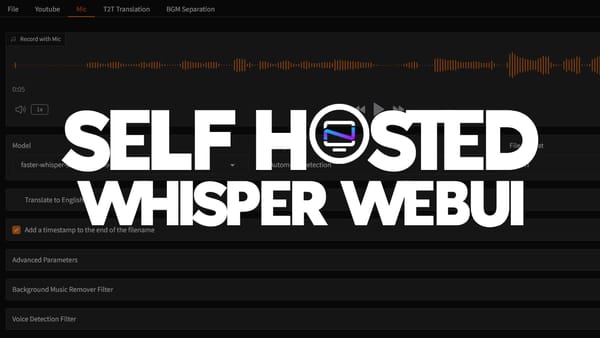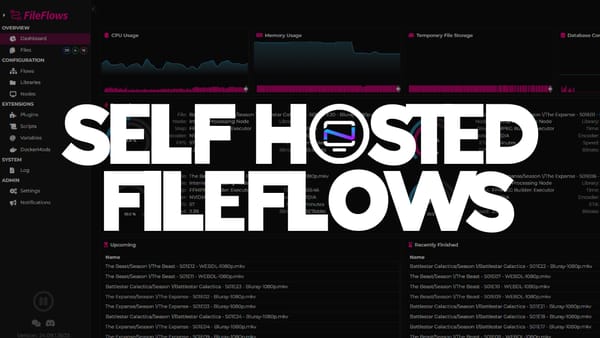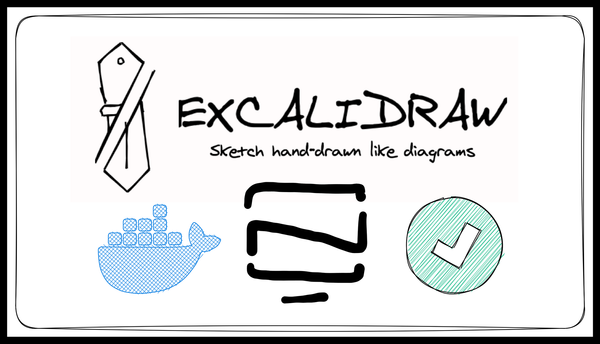Synology NAS - Are they good for Self-Hosting?
Are Synology NAS devices any good for self-hosting? Let's talk about it.
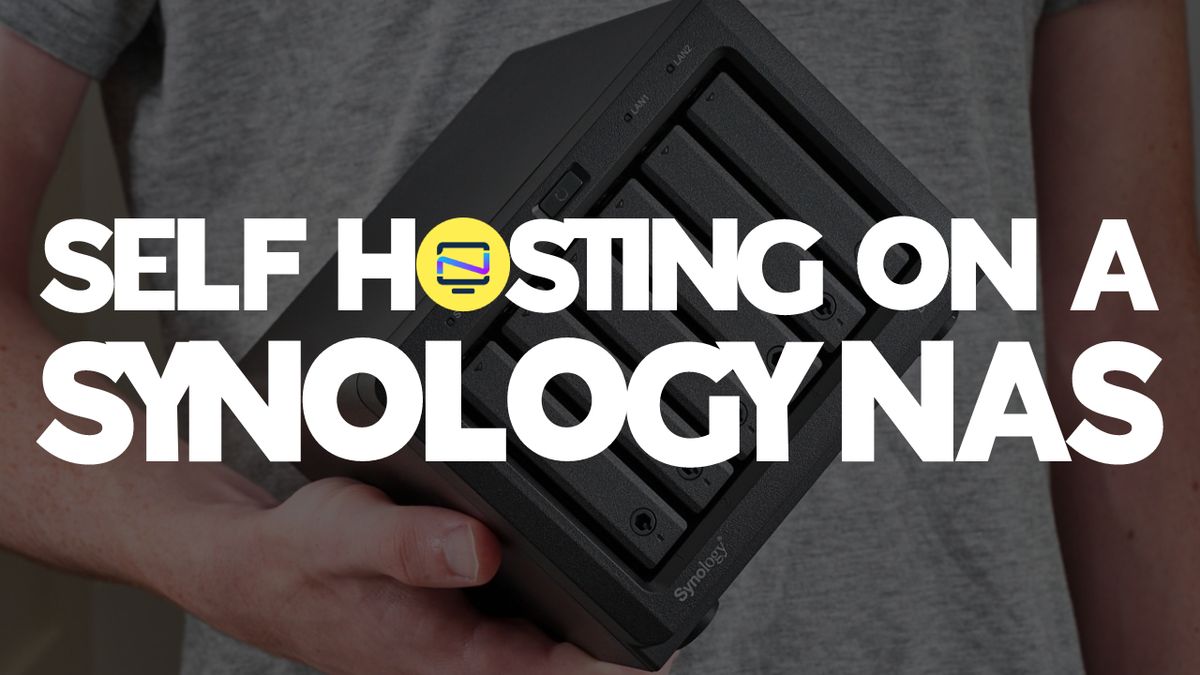
In recent years, there has been a growing trend of individuals and businesses looking to self-host their own data and applications. Whether it is for privacy concerns or the desire for greater control, there are many reasons why someone might want to take control of their digital life. One of the best tools for achieving this goal is a Synology NAS.
The notion of utilizing a Synology NAS for self-hosting can spark controversy, with differing views on whether dedicated servers or cloud hosting services are more favorable alternatives for various reasons. Nevertheless, opting for a Synology NAS can present a range of potential advantages in the realm of self-hosting.

A Synology NAS (Network-Attached Storage) is a type of device that connects to your home or office network and provides centralized storage and management for your data. In addition to basic file storage, a Synology NAS can also be used to host a wide variety of applications, including media servers, web servers, and even virtual machines. Here are just a few reasons why people who self-host should consider getting a Synology NAS.
Would I use a Synology NAS to host a website? No. Absolutely not. While they are ok for hosting small personal apps like wikis, note taking apps and other apps that will not be promoted and expecting high volume traffic, I wouldn't suggest hosting a public website on a NAS of any kind.
Pros and Cons for Self-Hosting with Synology NAS Devices
Pros:
- High level of flexibility and customization: Synology NAS devices offer a high level of flexibility and customization that allows users to configure their home server according to their specific needs and requirements.
- Affordable pricing: Synology NAS units are affordable and provide a cost-effective solution for self-hosting compared to renting cloud services with monthly fees.
- Easy setup: Synology NAS devices have a user-friendly interface, making it easy for users to set up and configure their own servers.
- Centralized storage: Synology NAS units help user centralize their data storage and access it from any device without relying on cloud services.
Cons:
- Limited processing power: Synology NAS devices, especially entry-level models, don't have as much processing power as dedicated servers.
- Limited storage capacity: Entry-level Synology NAS units may have limited storage capacity, which can affect users with high storage needs.
- Dependence on network stability: Synology NAS for self-hosting is dependent on network stability and connectivity, which can affect user experience.
- Limited software compatibility: Synology NAS may not be compatible with all software applications, which can limit users' options for self-hosting.
- Limited hardware upgradeability: Synology NAS devices may have limited hardware upgrade options compared to dedicated servers.
- Limited security: When using proprietary NAS software such as Synology DSM, you are at the mercy of the company when it comes to overall security. Just be sure to use proper security measures if you expose Docker images. Tools such as fail2ban, Crowdsec or Cloudflare.

Centralized Storage
One of the primary benefits of a Synology NAS is its ability to provide centralized storage for all of your data. Instead of having files scattered across multiple devices and cloud services, you can store everything on your NAS and access it from anywhere on your network. This makes it easier to organize and manage your data, and it also helps to ensure that you always know where your files are.
Privacy and Security
By using a Synology NAS, you can ensure that your data is always under your control and is not being accessed or monitored by third-party services. You can also take advantage of Synology's built-in security features, such as data encryption and two-factor authentication, to further protect your data. But this can only take you so far when exposing self-hosted services to the internet. It's important to take precaution and know what your options are.
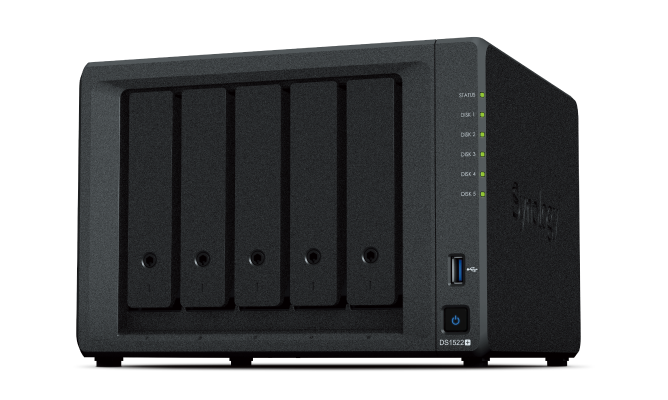
Flexible Application Hosting
One of the most powerful features of a Synology NAS is its ability to host a wide variety of applications. This includes everything from media servers and file sharing applications to web servers and virtual machines. By hosting these applications on your own device, you can ensure that you have complete control over your data and how it is accessed. You can also customize these applications to meet your specific needs, whether that means configuring your media server to automatically transcode videos or setting up a web server to run a custom application.
Easy to Use
One of the biggest barriers to self-hosting for many people is the perceived complexity of setting up and managing a server. However, Synology NAS devices are designed to be easy to use, even for people with little to no technical experience.
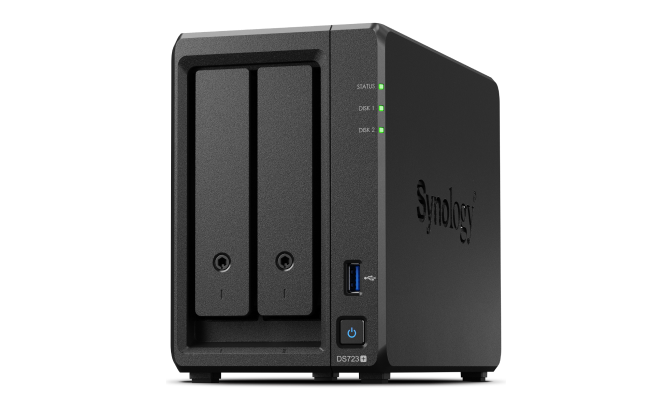
The Synology Package Manager is an installer and management tool that allows users to easily install, manage, and update various packages on their Synology NAS device. These packages include third-party applications, utilities, and services that enhance the functionality of the NAS, such as media servers, backup solutions, security tools, and more. The Package Manager provides a user-friendly interface that enables users to browse, search, and download packages from Synology's official and community repositories, as well as install and configure them with just a few clicks. It also provides notifications and alerts when updates are available for installed packages, simplifying the process of keeping the applications up-to-date.
Affordable
Finally, Synology NAS devices are relatively affordable compared to other self-hosting options. While it is true that you will need to purchase the device itself, once you have it, there are no ongoing subscription fees or other costs to worry about. This makes a Synology NAS a cost-effective solution for people who want to take control of their digital lives without breaking the bank.
Which Model to Start With?
These days, prices vary and you are better off finding one used but one Synology NAS model that is affordable and allows Docker is the Synology DS220+. This model is a two-bay NAS that runs on the Synology DiskStation Manager (DSM) operating system, which is highly intuitive and user-friendly. It is also equipped with a powerful Intel Celeron J4025 dual-core 2.0 GHz processor and 2GB of DDR4 memory, making it capable of running Docker and other resource-intensive applications.
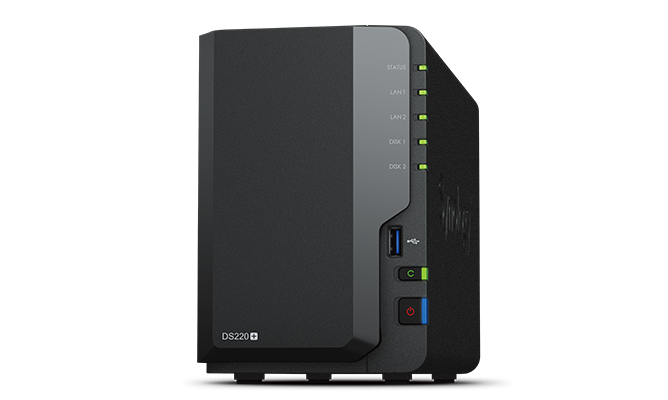
The DS220+ supports up to two 3.5-inch SATA hard drives or two 2.5-inch SATA solid-state drives, providing up to 32TB of storage capacity when using two 16TB drives. It also comes with two Gigabit Ethernet ports for fast network connectivity and a USB 3.0 port for external storage devices or printers.
In terms of Docker support, the DS220+ is capable of running Docker containers directly through its DSM operating system.
Final Notes and Thoughts
I didn't want to start with telling you that I began my self-hosting journey on a Synology NAS 5 years ago. It has grown a bit out of control and I now own 4 different Synology NAS devices, a NUC, 3 4U home brew servers, a 2U homebrew server and multiple mini PCs. Synology NAS is more than capable of self-hosting applications!
While I no longer host applications on Synology, it was a good experience when I did. You just have to know the limits of your hardware and understand the benefits of using 3rd party security tools like Cloudflare and fail2ban. I cannot stress that enough because we can never rely on a NAS software to be completely secure. But the same can be said for any operating system you use on any other hardware.
If you are considering self-hosting your own data and applications, a Synology NAS is an excellent tool to help you achieve this goal if you are just starting out. With DSM 7.2 on the way, Synology is more efficient than ever with the new Container Manager and added security features.



